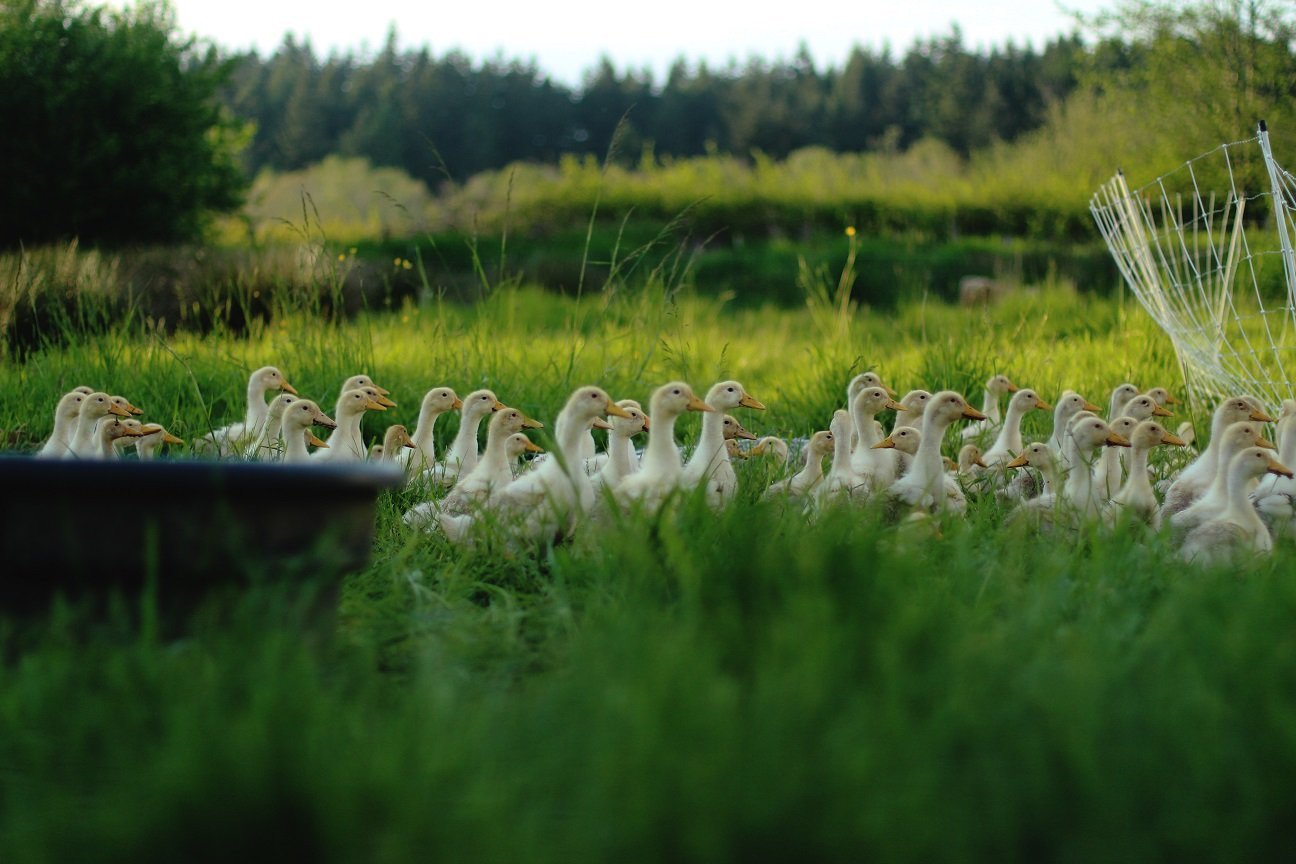We do the research so you don’t have to.
PRODUCT POLICY PROMISE
Product Philosophy
Our product selections reflect our mission and values, translating our ideals into action. To serve our community, we endeavor to be a full-service grocery store with the wide range of products our customers seek, including a broad selection of whole, staple foods at reasonable prices. In particular, our choices aspire to promote quality products, commitment to community, concern for the environment, fair treatment of workers, and support for the cooperative movement.
Product Guidelines
🍎 Quality Products: We favor whole foods with minimal processing; certified organically grown; verified non-GMO; and without ingredients on our unacceptable ingredients list.
🏘️ Commitment to Community: We give preference to products grown or produced by small scale enterprises and to those grown or produced locally or regionally.
🌍 Concern for the Environment: We favor products with the least environmental impact.
🧑🌾 Fair Treatment of Workers: We give preference to goods produced by workers who are fairly treated and fairly paid.
💜 Support for the Co-op Movement: We give preference to products made and/or distributed by co-ops.




Departments
Click below to learn more about the product guidelines specific to each department in our store.
-
Our Produce Department strives to supply its members with a wide variety of high-quality, organic fruits and vegetables. Over the years, the Co-op has built long-term relationships with many local growers and will continue to build on these relationships. To ensure a steady supply, the Co-op also works to foster new farm relationships. We purchase locally grown products over non-local products whenever availability and quality standards are maintained.
Certified Organic Changes as of January 1, 2025
As long as I can recall, The Food Co-op has had a “certified organic” produce department. In fact, we had the only one on the Olympic Peninsula. Why was this important? The certification meant that we had been inspected by the WSDA and they verified that we were maintaining the organic chain from field to distributor to trucker to retailer to you, the customer.
Now the USDA organic regulations no longer require retailers to be certified handlers to sell products with organic claims. And due to high demand, WSDA, decided to limit their resources to business that require certification and would no longer offer this service to retailers. Which means as of January 1, 2025, we can no longer lay claim to being “certified organic” and must remove any reference to that claim in our store and marketing materials.
So, what will change? We’ll be taking down the word “certified” from the white beam above produce and removing references to “certified” in our materials. What won’t change? Our commitment to organic and maintaining that chain of integrity within our operations. In the beginging of Janaury we'll be double checking all signage to ensure compliance, as well as any other changes we may decide to implement, and will keep you updated.
Organically yours, Kenna
-
Each and every product on our shelves meets the following criteria:
NO harmful preservatives
NO artificial flavors
NO artificial colors
NO hydrogenated oils
NO high fructose corn syrup
Whether it’s cereal, pasta sauce, or chocolate, you can shop knowing your food is made with quality, whole food ingredients, without the nasties like artificial colors, flavors, and harmful preservatives.
-
THE FOOD CO-OP SEAFOOD SUSTAINABILITY POLICY
All of our fresh, frozen, and canned seafood meets the following guidelines.
Monterey Bay Aquarium (MBA) Seafood Watch best choice or good alternative, (green or yellow) https://www.seafoodwatch.org.
OR
Marine Stewardship Council (MSC) certified, also recommended by Seafood Watch, https://www.msc.org.
For those species either not covered by MBA or not from MSC certified areas, for example, some sardines and anchovies, we support small community fisheries.
We may stock some farmed shellfish, for example, oysters & mussels, which meets Seafood Watch best choice or good alternative.
We will continue to collect information and monitor certifications and origins, to be incorporated in an annual review of this policy.
Words about the benefits of farmed shellfish: Farmed shellfish actually improve the water quality by removing nitrogen, phosphate, and other nutrients from the water as they feed, nutrients that are much too prevalent in our waters due to fertilizer runoff. A single oyster, for instance, can filter as much as 120 liters of water each day. In addition, researchers have found a greater diversity and richness of species in sea beds hosting shellfish farms than in sea beds of eelgrass—from invertebrate to herring and perch to water birds. Shellfish even help offset carbon dioxide emissions by incorporating carbon in their shells.
Seafood Watch guides: Seafood Watch quick reference guides to help you choose sustainable seafood are available at the fresh fish case.
THE FOOD CO-OP MEAT GUIDELINES
We give local and regional ranchers priority if they meet our criteria and can keep up with our customer demand. All meats must meet the following criteria:
All animals are raised on vegetarian diets
No use of antibiotics or growth-promoting hormones
No feed containing animal by-products
No artificial food colorings or preservatives
No meat or dairy from cloned animals or their offspring
-
At the Port Townsend Food Co-op, wellness extends far beyond what’s on your plate. We offer a wide selection of natural products, including our very own line of vitamins, to support your overall health. From essential oils and herbal remedies to whole food supplements, shampoos, and soaps, our wellness section is designed with clean, safe ingredients for your whole family. Plus, don't miss Wellness Wednesday! On the second Wednesday of every month, members save 15% in our Wellness Department—on top of any sale prices. It’s the perfect time to stock up on all your favorite health essentials.
Look for these logos in store to help guide your shopping
-

Local 5
The Food Co-op defines LOCAL as products grown or produced in Jefferson, Kitsap, Island, Mason and Clallam Counties. These are identified by the LOCAL 5 label.
Visit our LOCAL PRODUCER page to learn more.
-

Local WA
The Food Co-op defines Local WA as products grown anywhere in Washington State. These products are identified by the Local WA label.
-

Inclusive Trade
A business that is at least 51% owned and operated by a group or individual who is part of an underrepresented or underserved group.
This includes businesses that are women-owned, BIPOC-owned, LGBTQIA+-owned, veteran-owned, or owned by people with disabilities.
Visit our INCLUSIVE TRADE page to learn more.
-

Farm Direct
Farm direct refers to selling agricultural products directly from the farm to The Food Co-op, without using any other distribution middlemen. Farm Direct does not mean local, we do purchase farm direct from outside our state.
-

Organic
Organic is a label that indicates that a food or agricultural product has been produced according to the USDA organic standards, which require operations to use practices that cycle resources, conserve biodiversity, and preserve ecological balance. The USDA’s National Organic Program develops and enforces the standards for organic crops, livestock, and agricultural products so consumers can feel confident purchasing organic goods.
-

Fair Trade
Fair trade is a system of trade that aims to help producers in developing countries receive fair prices for their goods. Fair trade also aims to improve working conditions, social and environmental standards, and reduce poverty.
-

NON-GMO
“Non-GMO Verified" means that a product has been verified by the Non-GMO Project to not contain genetically modified organisms (GMOs).
-

Wild-Crafted
Wildcrafting, also known as wild harvesting or foraging, is the practice of harvesting herbs, mushrooms, or other plants from their wild or native habitat.
-

Co+op Deals
Co+op Deals is a sales promotion program for food co-ops that are part of the National Cooperative Grocers (NCG) network. The program offers discounts on a variety of products throughout the year.
-

Co+op Basics
Co+op Basics is a program from the National Cooperative of Cooperatives (NCG) that offers low prices on everyday groceries and household items.

